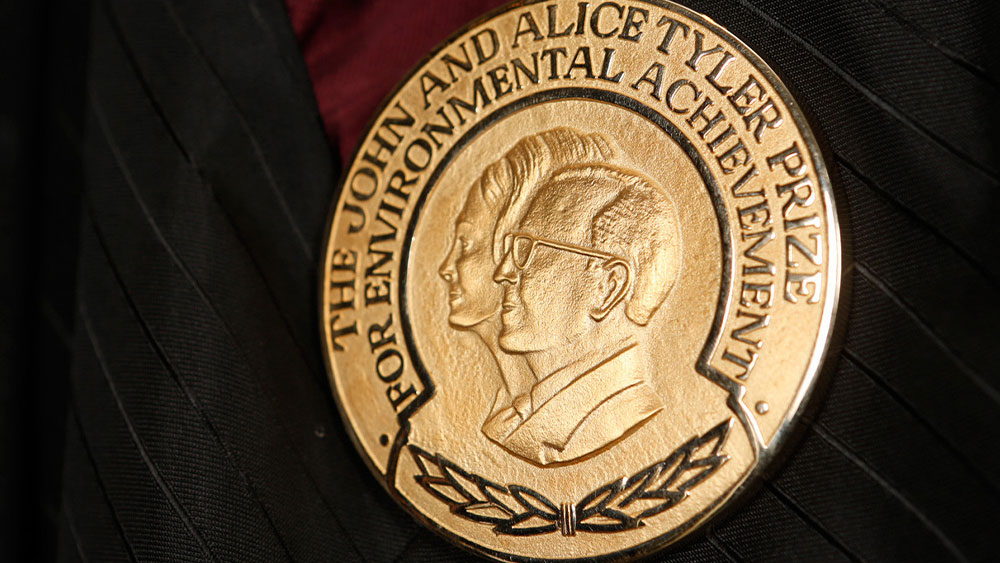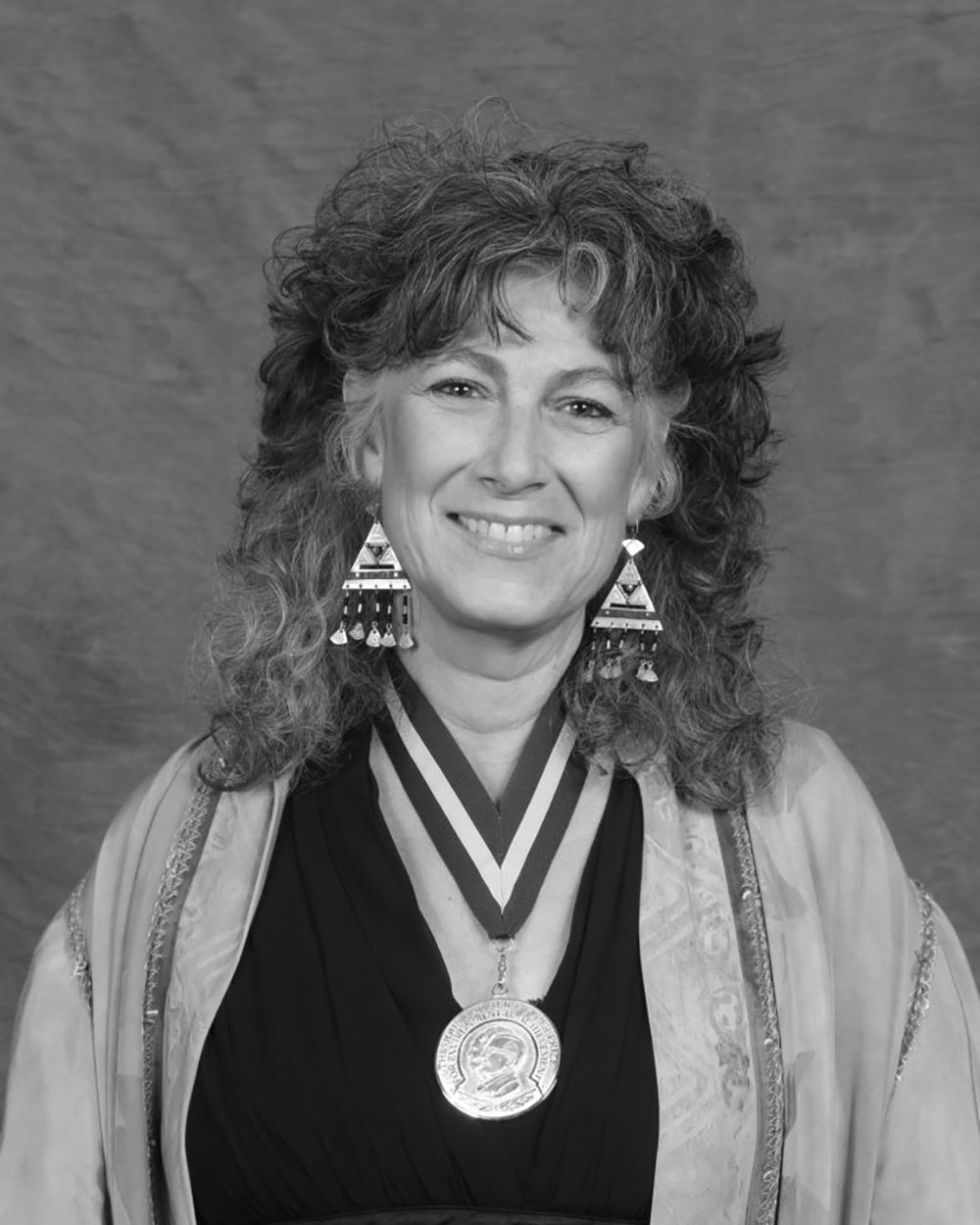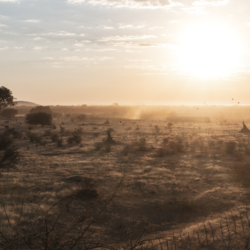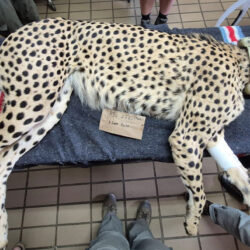One more Award for CCF: the 2010 Tyler Prize for Environmental Achievement
-

- by CCF Staff March 17, 2010

2010 Tyler Laureates Laurie Marker and Stuart L. Pimm Winners of 2010 Tyler Environmental Prize Announced Laurie Marker of the Cheetah Conservation Fund and Stuart Pimm of Duke University recognized for scientific and management contributions to the understanding and restoration of ecosystems.
Two conservationists whose careers have centered on understanding ecosystem functions as the essential foundation for ecosystem restoration will share the 2010 Tyler Prize for Environmental Achievement. The award, consisting of a $200,000 cash prize and gold medals, will go to Dr. Laurie Marker, the co-founder and executive director of the Cheetah Conservation Fund in Otjiwarongo, Namibia, and Professor Stuart Pimm, the Doris Duke Professor of Conservation Ecology at Duke University in Durham, North Carolina.
On Friday, April 23, at 7 p.m., the Tyler Prize Executive Committee and the international environmental community will honor the recipients at a banquet and ceremony at the Four Seasons Hotel in Beverly Hills. The Tyler Prize Executive Committee recognized Marker and Pimm “for their scientific contributions, their understanding of ecosystem functions, and for their applications of this knowledge to the management and restoration of ecosystems to the benefit of their inhabitants.” Laurie Marker has been involved in the study of wild cheetahs for more than 30 years and established an organization in Namibia to study them and protect them. The organization approaches wildlife conservation by clearly addressing the needs of human inhabitants and creating economic opportunities for them. The Tyler Prize award is made in recognition of her contributions to developing an ecosystem-based approach to sustainable management of a landscape that incorporates “the knowledge and economic interests of the local population” to support its long-term goal of protecting the endangered cheetah.
Marker has been involved in the study and captive breeding of cheetahs since the mid-1970s and established the Cheetah Conservation Fund in 1990. The group addresses problems, real and perceived, of cheetah predation on livestock as well as the very real degradation of grazing land and wildlife habitat by an invasive plant. Marker has initiated projects that raise guard dogs for livestock herds to reduce cheetah predation and that create an economic enterprise to clear invasive thorny bushes and process them into fuel. The projects are building a constituency among rural Namibians for cheetah conservation and, at the same time, are restoring and protecting farmland, livestock pastures and wildlife habitat.
Marker’s nomination for the Tyler Prize was initiated by a former U.S. Ambassador to Namibia, Jeffrey Bader. In his letter of nomination, Bader described Marker as “literally and figuratively a force of nature,” and he described the work of the Cheetah Conservation Fund as “the most successful project I have ever seen to protect the world’s biodiversity.” Stuart Pimm has a long career in conservation research, teaching and public policy, and when Pimm’s colleagues refer to his work, they frequently cite its influence as well as its substance. His Tyler Prize award is made in recognition of his work to delineate the structures of ecological food webs, to understand the expected lifetimes of plant and animal populations, and to determine the populations that are most vulnerable to risks of extinction and those that have the capacity to recover most rapidly from disturbances. In his letter of nomination for the Tyler Prize, Edward O. Wilson, an emeritus Harvard University professor and himself a Tyler Laureate, said Pimm’s achievements “serve as an environmental conservation template.”


Pimm has studied the structure of ecological communities and the consequences of diminished species diversity across the trophic levels of ecological communities. In addition, Pimm has developed theory and empirical analysis to address the conservation of endangered species in terms of their communities and populations. Pimm has contributed to more than 200 journal articles, many of them as the lead author or sole author, has managed research projects around the world and has worked as a university-level professor for 36 years.
Pimm is well known for working beyond the scientific community as a policy advisor and source for media interviews. One of his colleagues, in a letter of support for his nomination for the Tyler Prize, said Pimm’s contributions to conservation science are notable because he cares enough to “find a way to make a difference.”
On Thursday, April 22, at 2 p.m., Marker and Pimm will deliver public lectures at the Davidson Conference Center of the University of Southern California, which administers the prize.
ABOUT THE TYLER PRIZE
The Tyler Prize for Environmental Achievement is one of the premier awards for environmental science, environmental health and energy.
It was established by the late John and Alice Tyler in 1973 and has been awarded annually to sixty-one individuals and four organizations associated with world-class environmental accomplishments.
Contact For More Information on the Tyler Prize, Contact:
Sue Anderson, Administrator
Related Reading
-
January 15, 2026
Thank You for Making Home Range for the Holidays a Success -
November 24, 2025
Tupuka’s Wild Life -
September 4, 2025
10,000 Vaccinations and Counting: A Milestone in CCF’s Rabies Campaign




